8 Things to Avoid When Asking For a Raise at Work
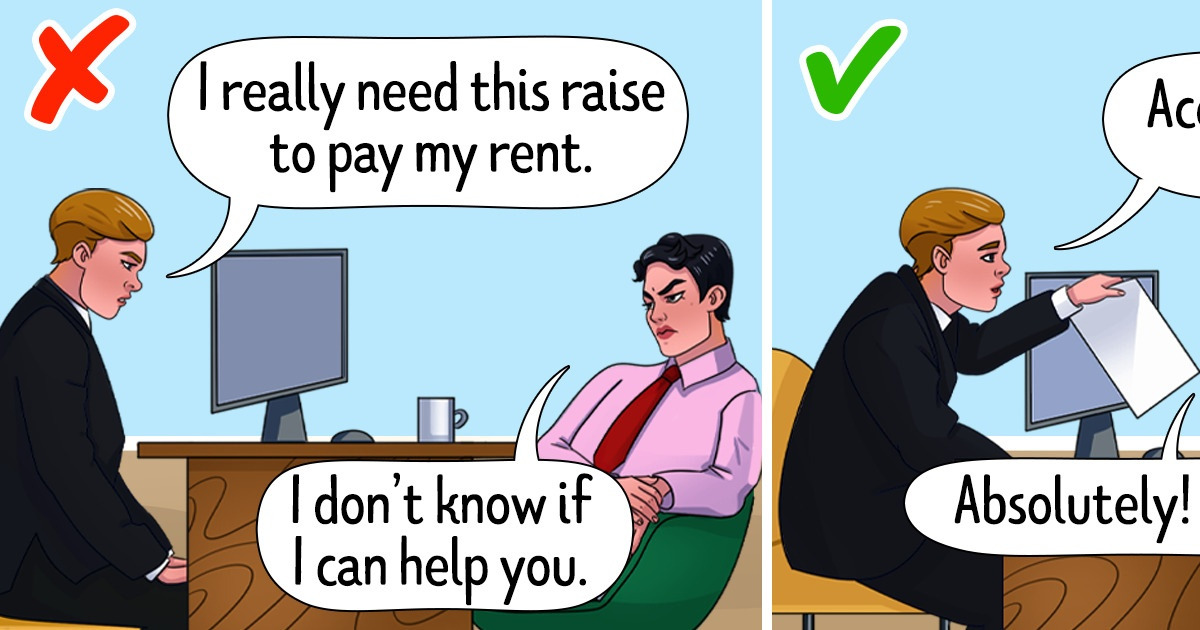
Asking for more money at work can make people feel nervous and uncomfortable. However, building the right strategy and being aware of what you shouldn’t do can help you achieve a positive outcome when having this conversation with your employer.
5-Minute Crafts has compiled 8 things you should leave out of the convo when negotiating a raise.
1. Bringing up the discussion at a bad time
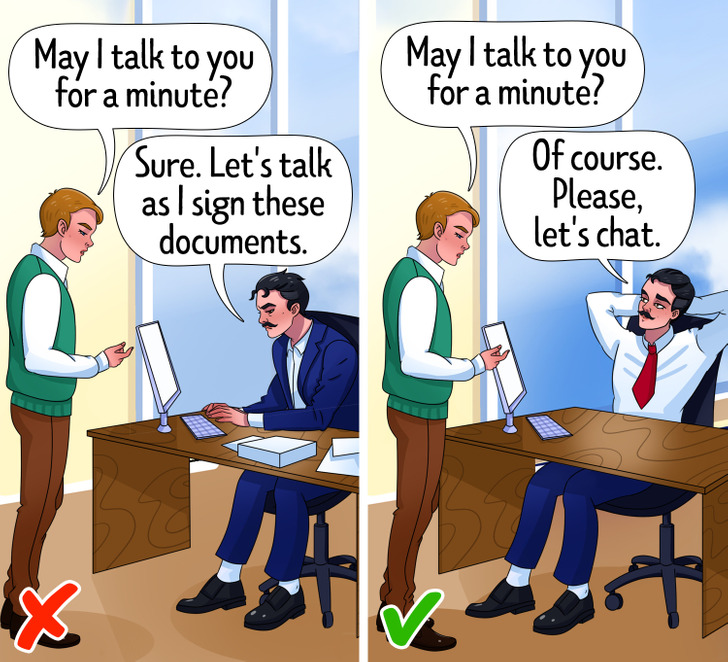
Picking the right time is crucial when talking about money. First, check your company’s guidelines regarding raises and consider whether there have been any recent layoffs or reduced revenue, as these could interfere with the answer to your request. At the same time, make sure your boss isn’t in the midst of a hectic schedule or under tons of pressure when you bring up the subject, as they may not have enough time to properly review your appeal.
✅ Ask for a raise soon after you have accomplished an impressive goal, like successfully finishing a project in a short period of time or closing a deal with an important client.
2. Asking for more money without presenting quantifiable evidence
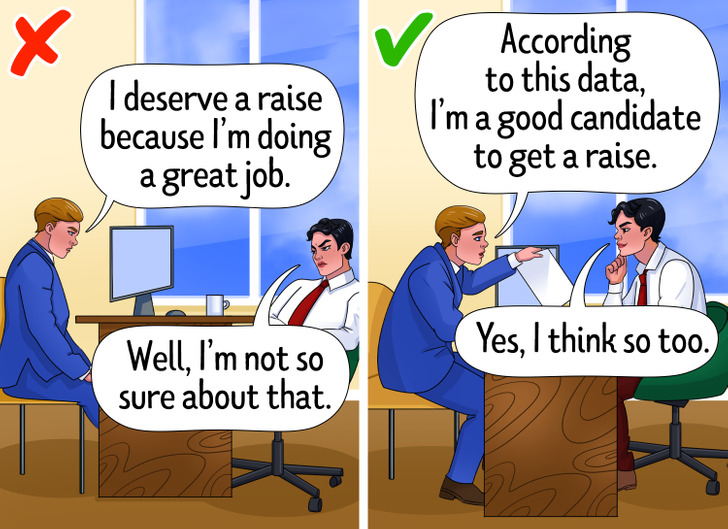
When asking for a raise, you should always be ready to prove that you deserve it and back up your request with specific evidence. Just telling your boss that you’re simply doing a great job may not be enough.
First, identify your achievements since your last raise by writing down a list of recent accomplishments that have surpassed your objectives. You can look at your last performance review to find this information. Then, include anything that has changed or increased your workload, and any new tasks you’re now responsible for. Also, consider those projects that you’ve been added to. Finally, write the resulting benefit to the company for each of these achievements.
Remember that you should show strong evidence to support your request, so focus on the greater value your efforts bring to your employer.
✅ Mention your unique skills and any positive feedback you’ve received from your colleagues and clients, as this may serve as proof that you deserve a raise.
3. Mentioning personal reasons
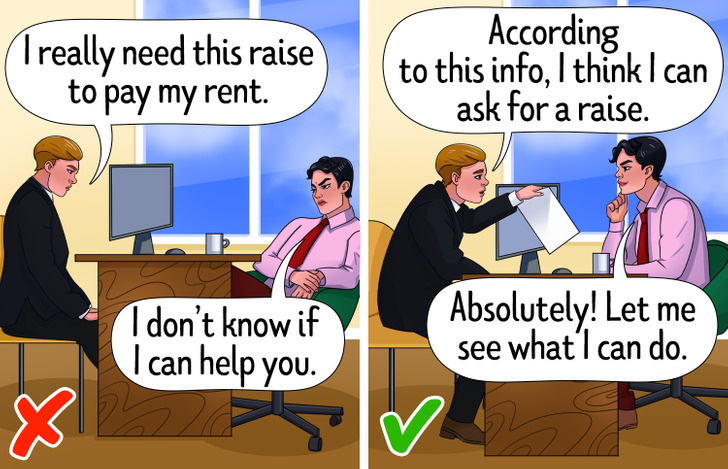
Although these may be valid, they shouldn’t be part of your request. Remember that raises are usually given based on professional aspects, like merit or past goals. Therefore, it may be difficult for your boss to justify your salary increase if there isn’t quantifiable evidence that you have earned it.
🚫 When talking about your raise with your boss, don’t get emotional or mention the amount of money that you need to pay your bills. Instead, take control of the situation by staying calm and focused on the subject.
4. Writing an e-mail or making a phone call to broach the subject
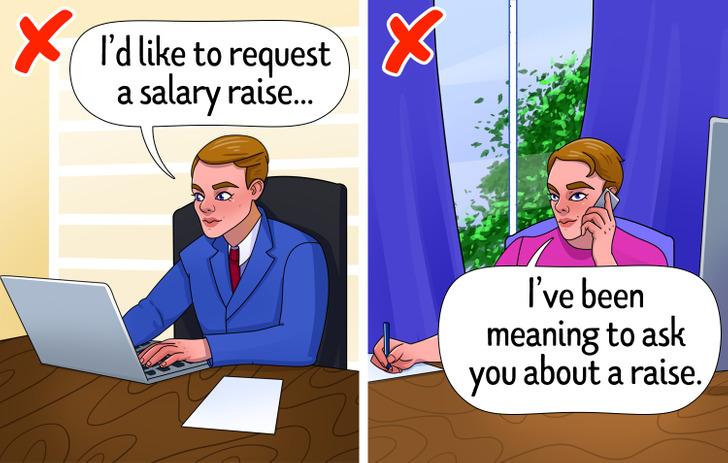
Although an e-mail may seem like a good option to discuss money, it’s usually not the best way. Additionally, talking on the phone may not be convenient either.
Instead, it’s advisable to have this conversation in person in a quiet place where nobody will interrupt you.
✅ Tell your boss you would like to talk about your salary and set up a meeting, as this will allow your supervisor to prepare for the discussion. If there’s a performance review scheduled anytime soon, you may want to wait until then to have the conversation.
5. Taking undue credit
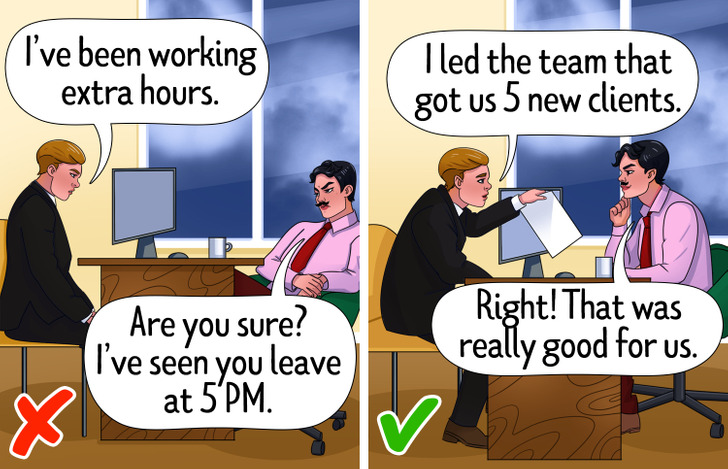
Projects are usually completed as a team, and your supervisor may already know about your role in them. So, avoid saying that you’ve been working extra hours when you haven’t, or saying that you’re responsible for increased sales when you worked on that alongside other colleagues. You may take credit, but only when it’s valid.
6. Looking unhappy about what you do
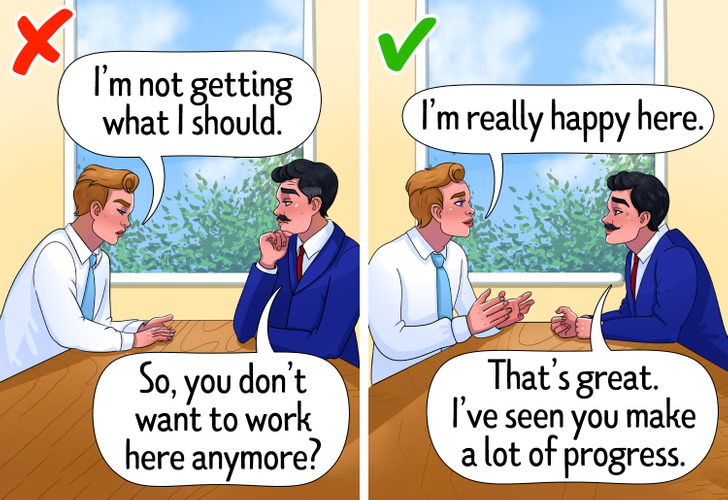
When asking for a pay raise, you may want to show how grateful you are for your job and how much you appreciate it. You certainly don’t want to sound demotivated or unhappy.
Tell your boss that you’re excited about your position and everything you’re learning, and then move on to a logical reason why you think you should get paid more.
✅ Keep a confident attitude when asking for a salary increase. Although the conversation can be intimidating, you will need a positive outlook in order to provide strong evidence to support your request.
7. Using your co-workers’ salary information to support your request

Leave office gossip out of the conversation, even if think you should receive the same or a higher salary than your colleagues. Besides looking unprofessional, you may not be able to tell for sure that this information is true.
Instead, use your own experience, goals, and merits as reasons to say why you should be paid more, not the amount of money other people are making in the company.
8. Giving an ultimatum
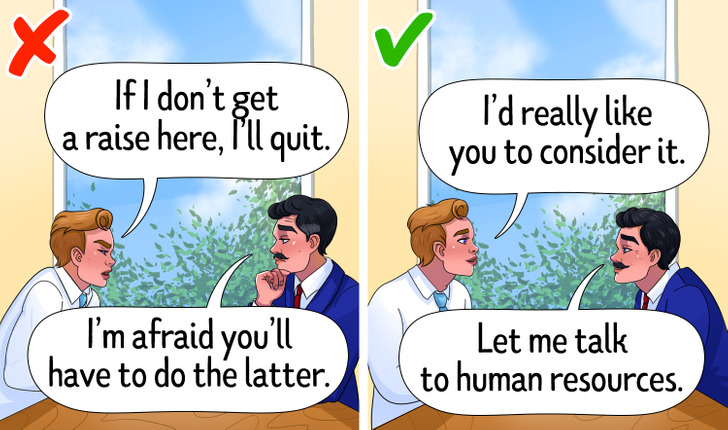
Unless you can afford to lose your job, you should leave ultimatums and everything that may sound like a demand out of the negotiation. Although it’s important to seem confident about your appeal, you should also pay attention to your tone of voice and be as professional, understanding, and patient as possible. Remember that, even if the answer is no, you should try to keep a good relationship with your supervisor.